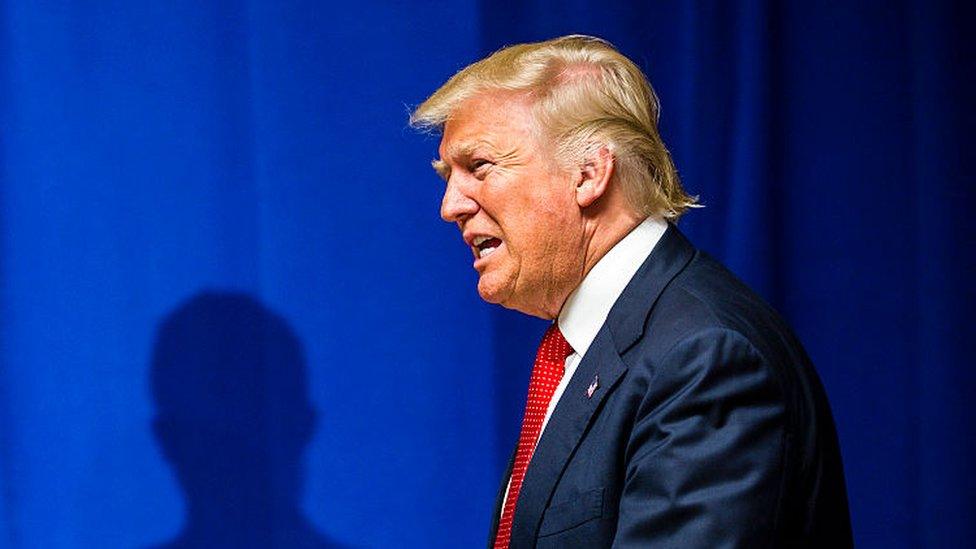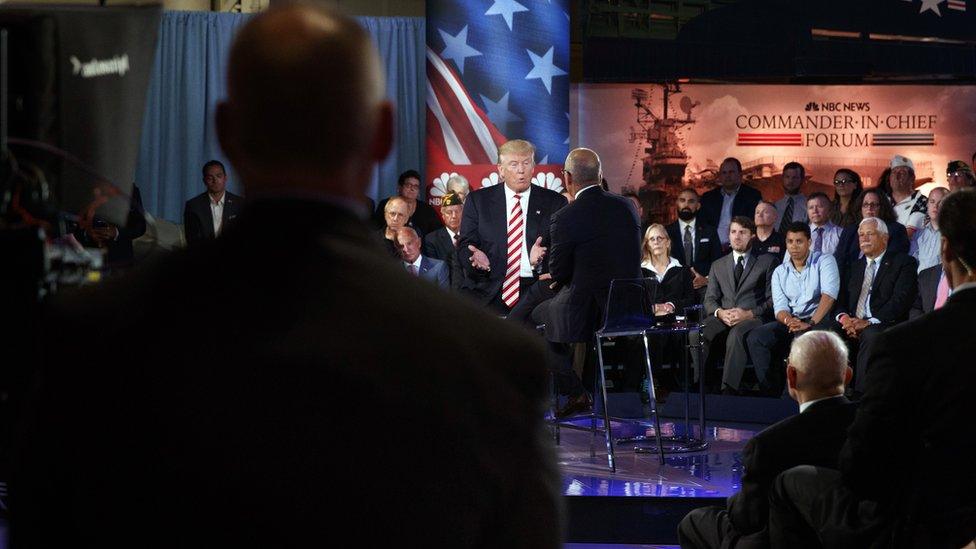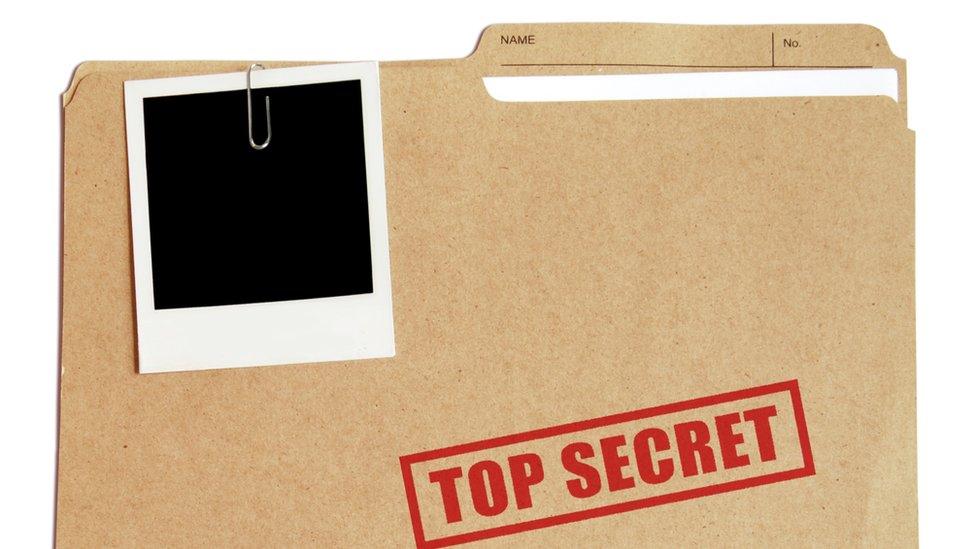How Trump ruffled intelligence service feathers
- Published

Major party presidential nominees have received intelligence briefings prior to election day for more than 60 years. It's traditionally been a non-controversial part of the campaign process, a one-day side story about how close the candidates are to assuming the burdens of the presidency.
Donald Trump, once again, seems to be changing the rules of the game.
The current kerfuffle started on Wednesday night at the Commander-in-Chief presidential forum, when moderator Matt Lauer asked the Republican candidate if he had heard anything that surprised him during his two intelligence briefings.
The question seemed like an obvious trap, designed to draw Mr Trump into revealing classified information or saying something controversial. He avoided the former. The latter? Not so much.
"What I did learn is that our leadership, Barack Obama, did not follow what our experts and our truly - when they call it intelligence, it's there for a reason - what our experts said to do," Mr Trump said.
"I was very, very surprised," he continued. "In almost every instance. And I could tell you - I have pretty good with the body language - I could tell they were not happy. Our leaders did not follow what they were recommending."
Lauer then moved on to other topics, and the exchange was a bit lost in the flood of newsworthy statements Mr Trump made about Russian President Vladimir Putin, sexual assaults in the military and his secret plan to defeat the so-called Islamic State.
Members of the intelligence community took note, however, and the following day they hit back.

Donald Trump's comments to Matt Lauer about his intelligence briefing have sparked controversy
Former Central Intelligence Agency Director Michael Hayden called Mr Trump's comments "just awful".
"A candidate used the intelligence professionals who were briefing him in an absolutely non-political setting, he imputed to them views that were politically useful to him in the moment," he told, external Politico.
NBC News reported, external that according to "four people with knowledge" of Mr Trump's August intelligence briefing, the meeting was disrupted by one of Mr Trump's advisors, retired General Michael Flynn, who was so argumentative with the intelligence agents that he had to be told to "shut up" by another Trump advisor, New Jersey Governor Chris Christie.
Gen Flynn - and the Trump campaign - have denied discord in the meeting, but some in the intelligence community have clearly decided to respond to Mr Trump's "body language" comment by leaking negative stories about Mr Trump and his team.
"Many members of the current intelligence community - leadership rank and file - were angered by Trump's comments Wednesday night and the possibility that he may have disclosed details of his intelligence briefing or attempted to politicise it," NBC News reported.
Hillary Clinton didn't waste time trying to capitalise on Mr Trump's comments, telling reporters on Thursday that she thought his actions were "totally inappropriate, undisciplined".
"I would never comment on any aspect of an intelligence briefing I received," she added.
The Trump campaign fired back, noting Mrs Clinton cited, external a classified Senate briefing she had received about the US military withdrawal from Iraq in order to admonish then-President George W Bush in 2008.
Former CIA official John Helgerson, in his book Getting to Know the President, external, writes that although the tradition of these intelligence briefings dates back to 1952, past transitions haven't always gone smoothly - such as when a candidate "brought a grudge with him or quickly became disillusioned with intelligence".
He notes that intelligence briefings rarely delve into more than just basic details of national security issues, but they do serve "to establish a solid working relationship with each new president and his advisors".
Last month, the day before his first briefing, Mr Trump said he didn't really trust, external intelligence provided by "the people who have been doing it for our country".
Now he is in a spat with the officials who have given him his briefings.
Mr Trump's "working relationship" seems off to a rocky start.
- Published18 August 2016

- Published8 September 2016
- Published7 September 2016